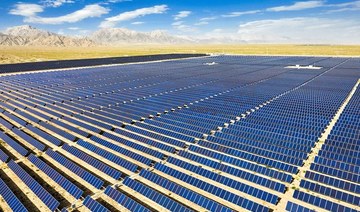RIYADH: The value of Egyptian exports to Arab countries surged 8.7 percent year on year to reach $13.6 billion in 2023, according to new data.
A statement from Egypt’s Central Agency for Public Mobilization and Statistics revealed that Saudi Arabia topped the list of the highest Arab countries importing from the nation during the year, with the value of the African country’s exports amounting to $2.7 billion in 2023.
This falls in line with the significant growth in trade relations, partnerships, joint projects, and development investment between the two countries in recent years.
The statement revealed that the Kingdom was followed by the UAE, with Egyptian exports reaching $2.2 billion, followed by Libya with about $1.8 billion, Sudan with an estimated $984.4 million, and Algeria at $850.3 million.
Regarding the top commodity groups exported to Arab countries during 2023, the agency indicated that vegetables and fruits were exported with a value of $1.3 billion, followed by machinery and electrical appliances with a worth of $1.1 billion.
Furthermore, Egypt’s exports of pearls, precious stones and jewelry to the Arab countries came next, amounting to $1 billion, while exports of fuel, mineral oils and distillation products stood at $753 million.
Meanwhile, the country’s exports of plastics and manufactures totaled $712 million.
On the imports side, the CAPMAS statement disclosed that the value of Egyptian imports from Arab countries reached $12.4 billion during 2023, down from $17 billion in 2022.
Once again, Saudi Arabia topped the list of Arab nations that exported the most to Egypt during 2023, with the value of Egypt’s imports amounting to $5.2 billion,
Kuwait came next, with the African country’s imports amounting to $2.7 billion, followed by the UAE with $2.1 billion, Oman with $717.4 million, and Bahrain with $399.5 million.
The prominent commodity groups imported from Arab countries during 2023 included fuel, mineral oils, and distillation products worth $6 billion, followed by plastics goods valued at $2 billion.
Egypt’s imports of recycled raw materials amounted to $785.1 million, followed by aluminum and its products at $399.2 million, and then fish, oysters, and molluscs at $213.3 million.
The CAPMAS statement noted that the volume of trade exchange between Egypt and Arab countries dropped 11.8 percent year on year to reach $26 billion in 2023, according to new data.
In March, American capital market firm S&P Global upgraded its outlook for Egypt to positive from stable.
According to a statement released at the time, the US-based firm also affirmed Egypt’s debt rating at “B-/B.”
This grade indicates that the country currently has the capacity to meet its financial obligations but faces ongoing uncertainties.






















